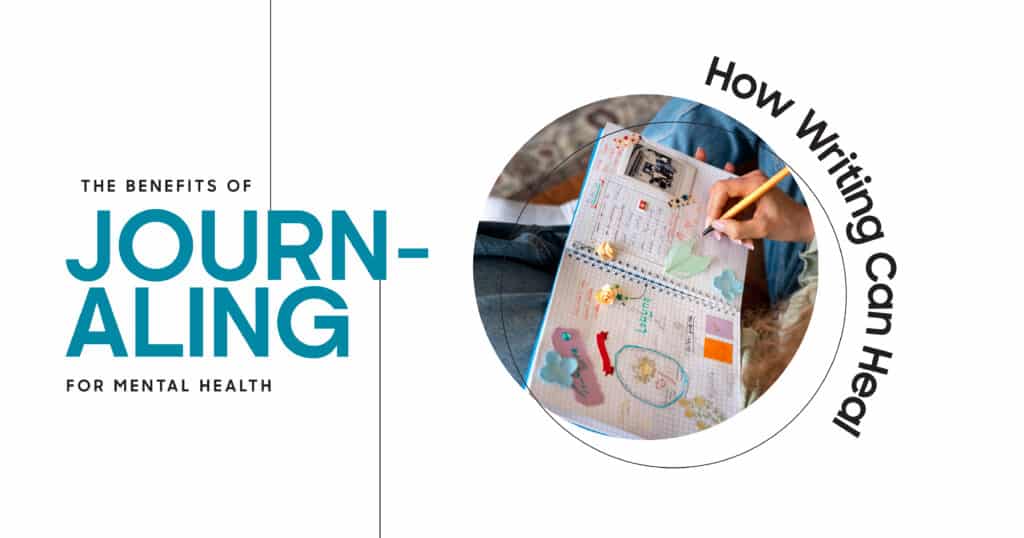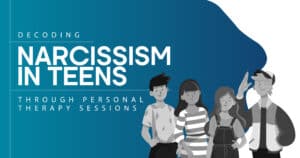Journaling is more than just a way to document your day-to-day activities; it’s a powerful tool for enhancing mental health and emotional well-being. Journaling can provide significant benefits if you’re looking to manage stress, gain clarity, or foster personal growth.
Essential Takeaways
- Journaling Benefits Mental Health: Provides an outlet for expression, reduces stress, and enhances emotional clarity.
- Try Different Techniques: Explore gratitude, reflective, and creative journaling to find what works best.
- Be Consistent and Patient: Regular journaling and a patient approach will help you gain the most benefits.
In this guide, we’ll explore how journaling can positively impact your mental health, delve into various journaling techniques, and offer practical tips to help you get started.
Why Journaling Matters for Mental Health
Journaling and Its Purpose
Journaling involves writing down thoughts, feelings, and experiences regularly. It can take many forms, from daily diaries to expressive writing and even artistic creations. The core idea is to create a personal space to freely express yourself.
Historically, journaling has been used as a reflective practice. Ancient civilizations kept records of their thoughts and experiences, and this practice evolved into what we now recognize as modern journaling. Today, journaling is embraced as a method of recording life’s events and as a therapeutic tool that can support mental health and personal development.
The Connection Between Writing and Healing
Writing about your experiences, emotions, and thoughts can have therapeutic effects. Research has shown that journaling can help reduce stress, manage anxiety, and improve overall emotional well-being. By putting your feelings into words, you create a form of emotional release that can lead to greater self-awareness and mental clarity.
Studies suggest that expressive writing can activate different brain areas, enhancing your ability to process emotions and experiences. This connection between writing and healing underscores the potential of journaling as a tool for mental health.
California Mental Health
The Science Behind Journaling
Neurobiological Benefits of Writing
Journaling, you engage in various cognitive processes that can positively impact your brain. Writing stimulates the brain’s executive functions responsible for managing complex tasks and regulating emotions. This stimulation helps release neurotransmitters like dopamine and serotonin, which are associated with happiness and well-being.
Moreover, journaling has been shown to reduce activity in the amygdala, the brain’s emotional center, which can help lower stress levels. Regularly engaging in writing can cultivate a more balanced emotional state and enhance your mental health.
Journaling and Emotional Processing
Emotional processing is another crucial benefit of journaling. Writing about your experiences allows you to reflect on your feelings and gain perspective. This process can help you understand and manage emotions more effectively, reducing the likelihood of them becoming overwhelming.
Journaling also provides a safe space to confront difficult emotions and experiences. You can work through these feelings and develop healthier coping mechanisms by articulating them.
Benefits of Journaling for Mental Health
Stress Reduction
Journaling can be a highly effective stress-relief tool. Writing about your stressors and daily challenges allows you to externalize your worries and gain a clearer perspective. This act of writing helps you process stress more constructively and can reduce overall anxiety levels.
For instance, keeping a daily journal where you document your stressors and how you manage them can help you identify patterns and develop better stress management strategies.
Improved Mood and Emotional Clarity
Many people find that journaling helps improve their mood and emotional clarity. By regularly expressing your thoughts and feelings, you can gain a deeper understanding of your emotional state. This clarity can lead to improved emotional stability and a more positive outlook on life.
Gratitude journaling, in particular, is known for its mood-enhancing effects. Writing about the things you’re grateful for can shift your focus from negative aspects of life to positive ones, fostering a more optimistic mindset.
Enhanced Self-Awareness and Personal Growth
Journaling fosters self-awareness by encouraging you to reflect on your thoughts, behaviors, and experiences. This introspection can lead to greater personal insight and growth. By regularly evaluating your actions and feelings, you can identify areas for improvement and set meaningful goals.
Reflective journaling helps you track your progress and celebrate achievements, contributing to a sense of accomplishment and personal development.
Exploring Different Journaling Methods
Gratitude Journaling
Gratitude journaling involves regularly writing down things you’re thankful for. This practice has improved mood, reduced stress, and enhanced overall well-being. To start a gratitude journal, set aside a few minutes each day to write about three things you appreciate. These can be as simple as a kind gesture from a friend or a beautiful sunset.
Reflective Journaling
Reflective journaling is about reflecting on your day or week and analyzing your experiences. This method can help you process emotions, solve problems, and gain insights into your behavior. Try writing about significant events, your reactions to them, and what you learned from those experiences.
Creative Journaling
Creative journaling combines writing with artistic expression. This can include drawing, painting, or collage. Creative journaling allows you to explore your emotions and thoughts through different mediums, providing a unique outlet for self-expression. It’s especially beneficial for those who find traditional writing challenging.
Goal-Setting Journals
Goal-setting journals focus on tracking and achieving personal goals. Use this type of journal to outline your goals, create action plans, and monitor your progress. Setting specific, measurable, achievable, relevant, and time-bound (SMART) goals in your journal can help you stay motivated and organized.
California Mental Health
How to Start Your Journaling Journey
Choosing the Right Journal and Tools
Selecting the right journal and writing tools can enhance your journaling experience. Choose a comfortable and inviting journal, whether a sleek notebook or a colorful diary. Consider using pens or markers you enjoy writing with, as this can make the process more enjoyable.
Setting Realistic Goals and Expectations
Start with realistic journaling goals. It’s important to balance setting ambitious goals and maintaining a manageable journaling routine. Aim to write a few times a week, gradually increasing as you become more comfortable with the practice.
Developing a Consistent Journaling Routine
Consistency is critical to reaping the benefits of journaling. Set aside a specific time each day or week to write. Whether in the morning to set intentions for the day or at night to reflect on your experiences, having a regular journaling routine can help you build the habit and make it a meaningful part of your life.
Overcoming Challenges in Journaling
Writer’s Block and Lack of Motivation
Experiencing writer’s block or a lack of motivation is common when starting a journaling practice. To overcome these challenges, try setting prompts or themes to guide your writing. Allow yourself to write freely without worrying about structure or perfection. Remember, the goal is to express yourself, not produce a polished writing piece.
Privacy and Sharing Concerns
Privacy concerns can affect your willingness to journal. If you’re worried about others reading your journal, consider keeping it secure or using a digital journaling app with password protection. Decide whether you want to share your journal entries with others, and if so, choose trusted individuals who can offer supportive feedback.
Balancing Journaling with Other Mental Health Practices
Journaling is just one tool among many for managing mental health. Balancing journaling with other practices such as therapy, meditation, or physical exercise is crucial. Integrating journaling with these practices can provide a comprehensive approach to mental well-being.
Conclusion
Journaling offers a range of benefits for mental health, from stress reduction and emotional clarity to personal growth and self-awareness. By exploring different journaling techniques and integrating them into your daily routine, you can harness the healing power of writing to enhance your well-being.
Encouragement to Begin Your Journaling Journey
Start today if you’re ready to experience the benefits of journaling for yourself. Choose a journaling method that resonates with you and set aside daily writing time. Remember, there’s no right or wrong way to journal—just find what works best for you and embrace the process.
Ready to start your journaling journey? Grab a journal and begin exploring the transformative power of writing. Share your experiences or ask questions in the comments below. Stay connected with our blog and resources for more tips and support on journaling and mental health.
California Mental Health
FAQs
- What is journaling, and how does it help mental health?
Journaling involves writing about your thoughts and feelings, which can help express emotions, reduce stress, and improve self-awareness.
- How often should I journal to see the benefits?
Aim to journal daily or a few times a week. Consistency is critical to experiencing the benefits.
- What types of journaling are best for mental health?
Effective types include gratitude journaling, reflective journaling, and creative journaling. Choose one or combine several based on your needs.
- What if I don’t know what to write about?
Use prompts like what you’re grateful for or recent challenges. Write freely and without judgment.
- Can journaling replace professional mental health treatment?
Journaling is a helpful tool but should complement, not replace professional therapy or counseling.







